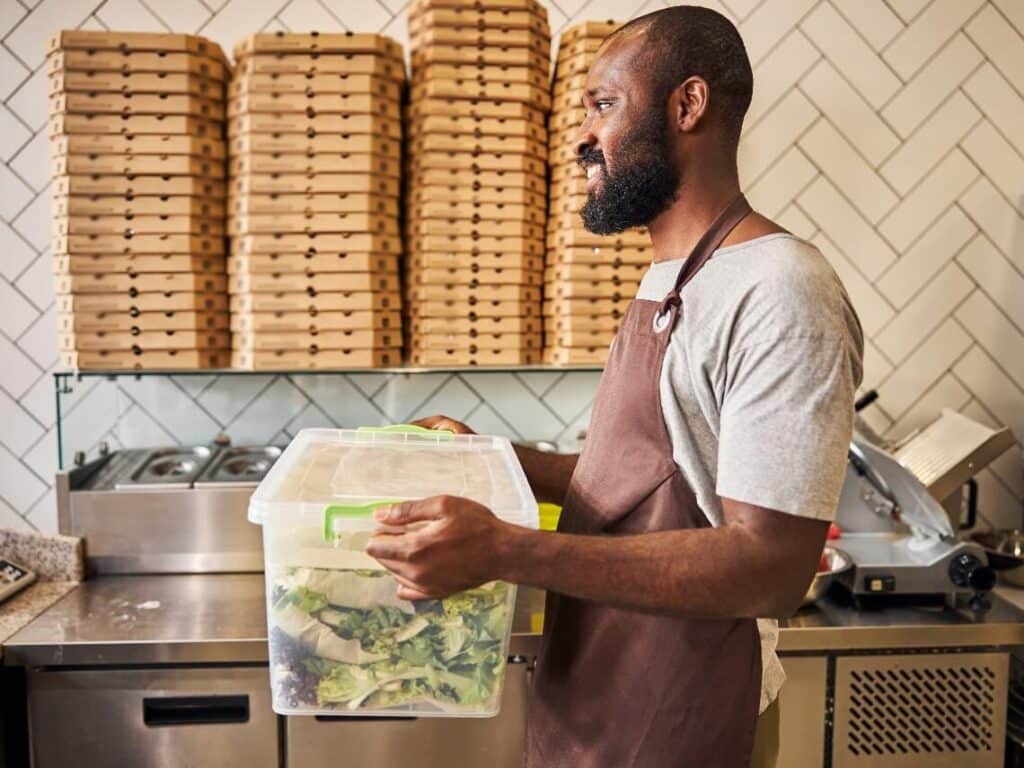Consumers are increasingly prioritizing eco-friendly practices in today’s world, and the restaurant sector is adapting by implementing strategies to reduce waste, such as composting. This shift benefits the environment and attracts a growing number of conscientious diners.
The Benefits of Composting
Composting is a natural process where organic waste decomposes into nutrient-rich soil. For restaurants, this means turning kitchen scraps, leftover food, and biodegradable packaging into valuable compost instead of sending it to landfills. Here are some key benefits:
- Environmental Impact: By composting, restaurants significantly reduce landfill waste, which lowers greenhouse gas emissions, particularly methane, produced when organic waste decomposes without oxygen in landfills.
- Cost Savings: Reducing waste volume can lower disposal costs. One way to cut costs and reduce waste is to buy in bulk and partnering with a local food distributor. Additionally, some restaurants use the resulting compost to enrich their gardens, cutting down on the need to buy commercial fertilizers.
- Improved Public Image: Sustainable practices like composting can boost a restaurant’s reputation. Customers are increasingly loyal to businesses that show a commitment to the environment.
How Restaurants Are Implementing Composting Programs
- Partnering with Local Services
Many restaurants collaborate with local composting facilities to ensure their organic waste is processed correctly. These services often provide bins and regular pickup schedules, making participation convenient for restaurants. - On-Site Composting
Some restaurants set up their own systems, especially those with outdoor space. On-site composting manages waste and educates staff and customers about sustainability. - Employee Training
Restaurants are investing in training programs to teach employees how to separate compostable materials from other waste. This ensures that the composting process is efficient and free of contaminants. - Community Involvement
Engaging the community increases participation and awareness. Some restaurants provide compost bins and information, while others involve customers in community initiatives.
Challenges and Solutions
While there are many benefits, it also poses challenges. Restaurants need to sort compostable materials properly to avoid contamination and may face logistical issues like limited space for bins and finding reliable composting partners.
To address these challenges, restaurants can:
- Start Small: Beginning with a pilot program can help restaurants gradually integrate it into their operations without overwhelming staff.
- Seek Support: Partnering with local government programs or sustainability organizations can provide resources and support to make it more manageable.
The Future of Composting in Restaurants
As more restaurants recognize the importance of sustainability, composting is set to become a standard practice in the industry. By reducing waste and creating a positive environmental impact, restaurants can promote a greener future. By doing this, it benefits the planet and resonates with a growing demographic of eco-conscious consumers.
Peddler’s Son is Arizona’s Top-Quality Food Supplier
Peddler’s Son is a beloved local food distributor, delivering farm-fresh food to Arizona restaurants, hospitals, schools, and more. Family-owned and operated since 1988, Peddler’s Son brings you honest pricing, unparalleled customer service, and reliably farm fresh produce and provisions every day.
We believe in quality and that’s what you’ll get when you rely on us to deliver high-value foods for your dishes. We put our food quality and reliable delivery service as top priorities along with the customers we serve all across the state.
Want to get reliable, quality fresh foods for your restaurant, school, or business? We can help! Contact us today for a full list of available bulk food items and how we can work together to get everything you need delivered on time!
